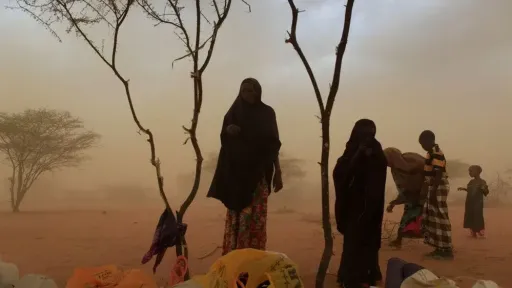Millions of Ukrainians face mounting, massive debt burden, 2 years after full-scale war with Russia

Two years since the Russia-Ukraine war started, the human cost is insurmountable, with no end in sight, and millions of Ukrainians are struggling under increasing debt, the International Red Cross said Friday.
After two years of fighting, it is “unbelievable” that it has not stopped, and many people still need a roof over their heads, Birgitte Bischoff Ebbesen, the regional director of Europe at the International Federation of Red Cross Red Crescent Societies (IFRC), told a UN press conference.
“While people are not amassed on the borders of Ukraine as they were two years ago, their urgent needs are growing more and more intractable,” said Ebbesen.
“For every Ukrainian family: whether near the front lines in Ukraine, whether displaced throughout the country, or whether forced to flee, these two years of lingering uncertainty have taken a major toll on both their finances and their mental health.”
She referred to a survey commissioned by the IFRC, which found that more than 50% of people in Ukraine and living in other parts of Europe still have urgent unmet needs like medical assistance, accommodation, and employment.
This is forcing them to assume debt or to accept underpaid, marginalized, or dangerous employment with an additional mental health and psychosocial toll mounting.
The survey found that 10 million Ukrainians have been displaced, with 3.7 million within Ukraine and 6.3 million now in other countries, with 55% of those outside Ukraine and 49% of those within the country saying they have “urgent unmet needs.”
Debt levels are increasing and 30% of impacted households now outside Ukraine have borrowed money to meet basic needs and some are spending 20% of their income just servicing the interest on debt.
The Red Cross said it has a Cash Assistance program, with 37% of refugees outside Ukraine saying it has become the main source of income to sustain their household and 1.1 million have received it.
“Many people inside and outside Ukraine have had to start over from zero,” said Ebbesen.
Since Russia sent its troops into Ukraine and a full-scale war began two years ago, Ukraine’s debt burden has come to the fore at a time when humanitarian and government programs are narrowing or ending, said the Red Cross.
“Despite the incredible impact we and others have made, now is not the time to turn a blind eye. The global attention and resources for Ukraine are waning but the humanitarian needs remain,” said Ebbesen.
Inside Ukraine, fighting and shelling are still an everyday reality to millions, noted the IFRC.
People are living with this uncertainty and pervasive stress every day, and current winter conditions have made it even more difficult when many houses are damaged or destroyed and water, gas, and electricity supplies are limited.
In hardest-hit areas, essential services are difficult to access, and people face shortages of food, water, and medicine.
Around 55% of the population in hardest-hit administrative regions expressed requiring urgent unmet needs with only 23% having access to humanitarian assistance.
"Millions of people have lost their near and dear ones; their homes and all the property they had. They have to start their lives from scratch,” said Ukrainian Red Cross director general, Maksym Dotsenko.
“Despite constant shelling and damaged infrastructure, the Ukrainian Red Cross managed to help more than 12 million people.”
AA



